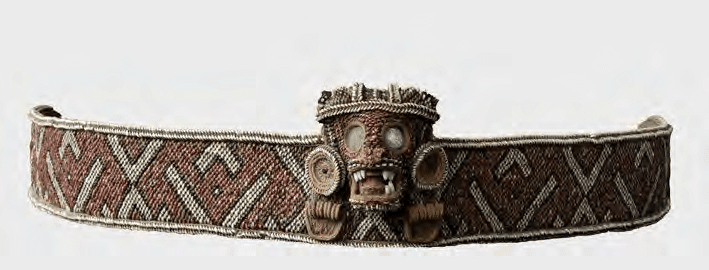The following are my initial thoughts to reading Hyland's commentary and study of the Quito Manuscript, passed down to us through a copy made by Fernando de Montesinos in his own chronicle, Memorias antiguas, historiales y políticas del Perú. Upon reading more about Fernando de Montesinos himself and the intellectual and ideological context of his work and time (justifying Spanish conquest of Peru, linking Peru to Ophir, and praising the Spanish monarchy as the Kingdom of Israel), one can appreciate how radically different the Quito Manuscript is from this worldview. Instead, as argued by Hyland, the anonymous author (mestizo or indigenous, and apparently from Quito) was celebrating the Incas and the precolonial past of the Andes,albeit in a highly Christianized context.
Hyland is pretty confident that the Quito Manuscript (as preserved by Fernando Montesinos) was written by an indigenous or mestizo man from Ecuador who did not speak Spanish or Quechua as a first language. She's also sure that the stories and legends of 93 kings of Peru cannot be correlated with the Tiwanaku or Wari kings. She thinks the indigenous or mestizo author of the chronicle copied by Montesinos was profoundly Christian/influenced by the Old Testament and wanted to adapt legends gathered from amautas in and Around Quito that could give the Andeans a deep antiquity and status as a civilized people who once worshiped the "True God" before the Spanish conquest. The Quito Manuscript is also pro-Inca, unlike Montesinos, although one wonders if the anonymous author of the chronicle was exaggerating the extent to which the Incas attempted to stamp out idolatry and sodomy because of the inculcation of Christian values by so many Indians by the 1600s.
Supposedly, there would still have been enough amautas or descendants of amautas around Quito in the late 1500s to consult, but due to the non-Quechua speakers and distance from Cuzco, a distinctly northern perspective and set of traditions were recorded and modified by our anonymous author (and then modified again by Fernando de Montesinos, the racist priest who believed Indians were inferior yet also viewed Peru as the land of Ophir once connected to the ancient kingdom of Israel. To make a long story short, I guess the list of 93 kings of ancient Peru must be mainly legendary, although it would be cool if some of them were based on Wari or Tiwanaku kings. We just dont have any evidence of that since places like Lake Titicaca or Ayacucho are not mentioned in the text.

No comments:
Post a Comment